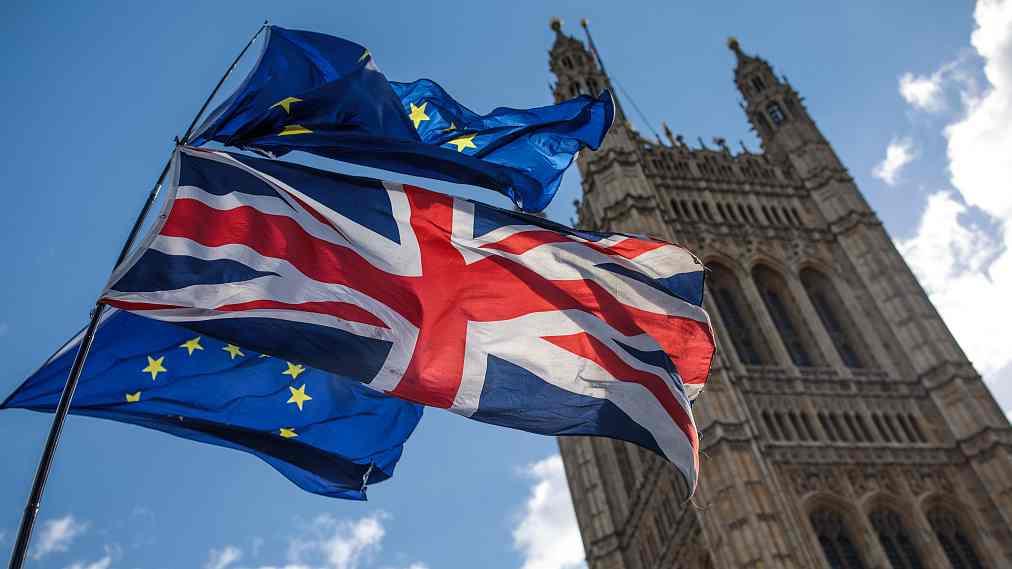LONDON, April 10 (CGTN) -- EU leaders agreed on Thursday to delay Brexit until the end of October, with a review in June.
The late-night agreement means Britain will not crash out of the bloc on Friday and gives May more than the three months she had asked for to build a parliamentary majority behind the withdrawal treaty she negotiated with the EU last year.
October 31 would correspond to the end of the five-year mandate of the present EU executive Commission.
'Don't waste the time'
"Please don't waste this time," European Council President Donald Tusk told the UK government in a news conference on Thursday, after eight hours of talks on the matter.
He said Britain still had all the options on Brexit available during the extension, from approving the stalled divorce deal, to changing its leave strategy to cancelling the departure altogether.
European Commission President Jean-Claude Juncker said he was certain Britain would honor the "sincere cooperation" obligation.
"We will have a Brexit with a deal. I'd prefer no deal without Brexit," Juncker told a news conference.
Leaders would meet again in June to assess the situation. Britain could have left by then if May succeeds in building a coalition for her deal with the Labour opposition – though there is no sign of agreement yet.
In order to continue as an EU member beyond June 1, May has agreed to organize British elections to the European Parliament on May 23, though it is still unclear if that vote will go ahead and how far it might turn into a virtual second referendum on EU membership that some hope could mean Britain canceling Brexit.
Macron's unhappy
French President Emmanuel Macron has refused to give Brexit another year.
Macron's push for a June Brexit and strong opposition to other leaders' preference for a much longer extension that might increase the chances of Britain changing its mind to stay in the bloc meant the meeting ended up with the October compromise.
"It's true that the majority was more in favour of a very long extension. But it was not logical in my view, and above all, it was neither good for us, nor for the UK," he said.
